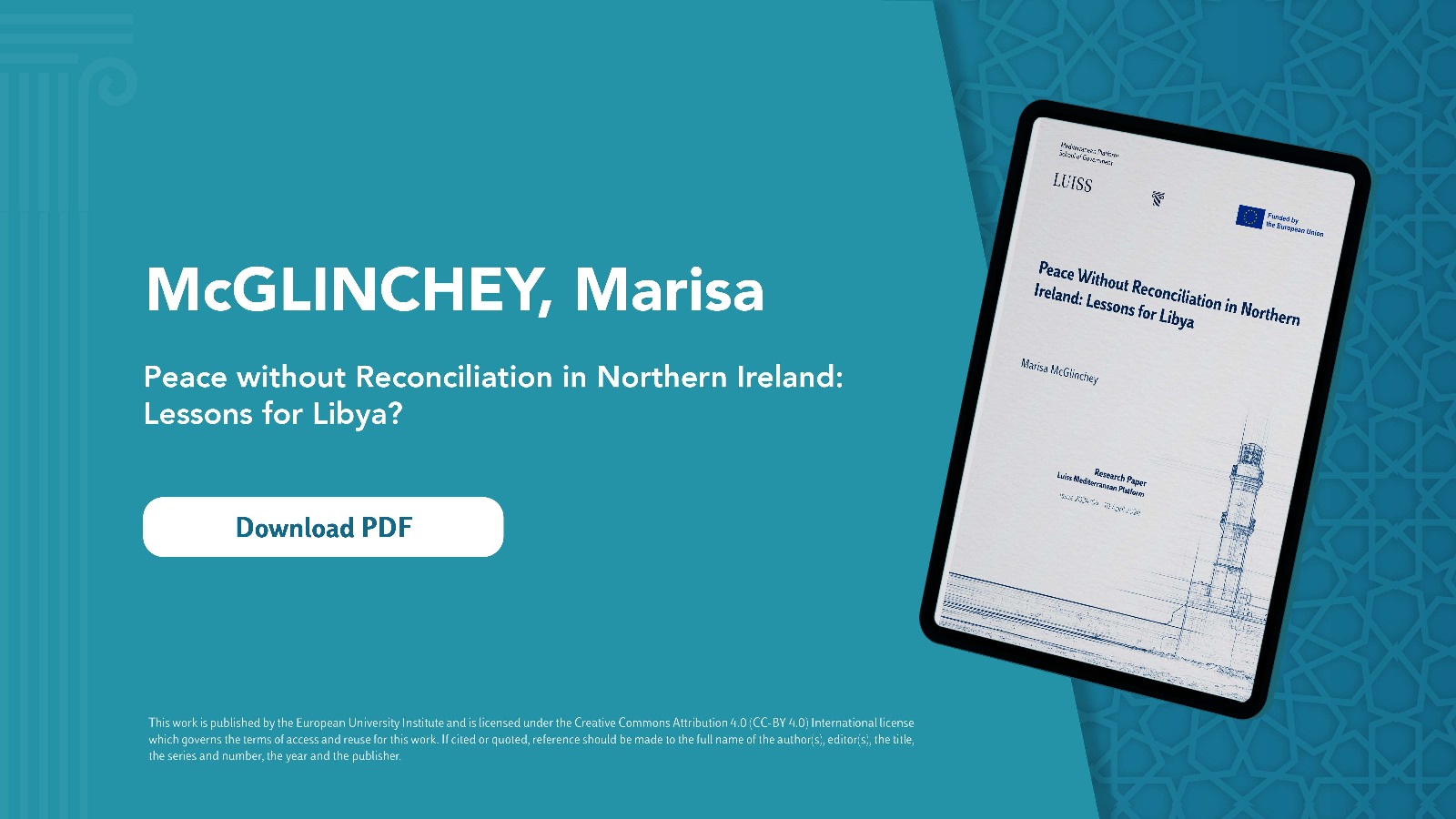National Reconciliation
Peace without Reconciliation in Northern Ireland: Lessons for Libya?
Abstract
Ireland has a centuries-long conflict. The most recent phase of conflict in Northern Ireland, which lasted from 1969-1994, resulted in the loss of over 3,700 lives and was accompanied by economic devastation. The ethno-national conflict revolves mainly around a constitutional question, namely whether Northern Ireland should remain as part of the United Kingdom or become part of a United Ireland. In 1998, the Good Friday Agreement was reached between the British and Irish governments and the main political parties in Northern Ireland, bringing relative peace to the region. Major reform has taken place in policing and justice and the principle of equality has been enshrined throughout Northern Irish society. This report discusses how Northern Ireland emerged from conflict into relative peace. It examines the institutions which resulted from the Agreement and the guiding principles behind them. The report details progress towards reconciliation; and explores remaining areas of division and continuing challenges to reconciliation, including dealing with the past, ongoing segregation, cultural divisions, identity issues, and a lack of political leadership in promoting reconciliation. The report concludes by recognising that the Irish peace process has been exported around the world as a model, whilst imperfect process; and outlines seven lessons which may be useful to other conflict situations including Libya.
National reconciliation in Rwanda: experiences and lessons learnt
Abstract
Rwanda became notorious internationally in 1994 when the genocide that mainly targeted the Tutsi people was perpetrated. How the country responded to the tragedy through national reconciliation is the core of this paper. By relying on a document analysis, the author provides contextual information and an analysis of Rwanda’s experiences in national reconciliation after the 1994 genocide, and an overview of the lessons learnt from these experiences. The paper discusses how the post-genocide government has been the driving force for national reconciliation. The government considered national reconciliation to be the only option were Rwanda to survive and tapped into home-grown solutions that combined universal and culture-based approaches and that involved judicial and non-judicial responses. The implementation process involved mandatory individual and community participation. The paper also discusses the successes and challenges in the process. Each conflict is unique, and addressing any conflict’s aftermath requires sensitivity to its nature and context. However, Rwanda’s experience with national reconciliation offers ‘food for thought’ for other countries living their own traumatic experiences of violent conflicts.
National reconciliation and peacebuilding in Algeria : lessons for Libya?
Abstract
Algeria is a post-conflict society that experienced a controversial process of reconciliation. The author scrutinises this process by highlighting the principal measures that were undertaken by the government, the constraints, and the complementary role played by civil society organisations. She also sets out the aspects of the Algerian experience that could be relevant for other countries experiencing violence, including Libya, where there is the need for reconciliation and peacebuilding processes. The analysis is divided into four sections. First, the author contextualises the conflict and sets out the main phases of the war. Then, she highlights the first steps toward negotiations and the factors that facilitated this. The third section examines the Civil Concord Law (CCL), which has been considered a significant milestone in the Algerian reconciliation process. The fourth element explores the principle components of national reconciliation looking particularly at the Charter for Peace and National Reconciliation (CNPR). Finally, the author illuminates the role that has been played by civil society organizations in establishing and enhancing the human rights regime after the war.


